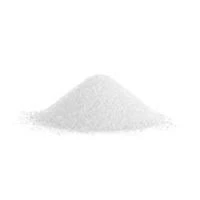
Natural Preservatives in Food Industry with a Focus on Sorbates and Their Benefits
Sorbates as Food Preservatives A Comprehensive Overview
Food preservation is a crucial aspect of modern food technology, aimed at preventing spoilage and extending the shelf life of products. One of the most commonly used preservatives in the food industry is sorbate, specifically sorbic acid and its salts, such as potassium sorbate. These compounds have garnered attention due to their effectiveness against a wide range of microorganisms, including molds, yeasts, and certain bacteria, making them a popular choice for food preservation.
Chemical Properties and Mechanism of Action
Sorbic acid, a natural compound originally derived from the berries of the sorbus tree, possesses unique chemical properties that contribute to its effectiveness as a preservative. It is a weak organic acid, and its antimicrobial activity is most effective in un-ionized forms, which can penetrate microbial cell membranes and inhibit their metabolism and growth. The mechanism of action primarily involves the disruption of cellular functions, leading to cell death or the cessation of growth.
Sorbates are effective over a broad pH range, making them suitable for various food products, particularly those with a pH of less than 6.5. They are often used in products like cheeses, baked goods, and beverages, where they can significantly inhibit spoilage, allowing food products to maintain their quality and safety for extended periods.
Safety and Regulatory Status
One of the significant advantages of sorbates is their safety profile. The U.S. Food and Drug Administration (FDA) has classified potassium sorbate as generally recognized as safe (GRAS) for use in food products. Numerous studies have indicated that, when used within recommended limits, sorbates pose minimal risk to human health. They are rapidly metabolized and excreted from the body, leading to no significant accumulation or toxicity.
sorbates as food preservatives

However, it is essential for food manufacturers to adhere to regulatory guidelines concerning the maximum allowable concentrations of sorbates in food products. The World Health Organization (WHO) and the European Food Safety Authority (EFSA) have established acceptable daily intake (ADI) levels, which help ensure consumer safety.
Applications Across the Food Industry
Sorbates find applications across a diverse range of food products, owing to their versatile preservative properties. In the dairy industry, for instance, potassium sorbate is commonly used in cheese production to inhibit mold growth. Baked goods also benefit from sorbates, as they help prevent spoilage and maintain freshness, extending the product’s shelf life.
Moreover, sorbates are increasingly utilized in the beverage sector, particularly in low-acid drinks, where microbial growth can be a significant concern. Their incorporation into salad dressings, sauces, and marinated products further underscores their versatility.
Given the growing popularity of clean-label food products, manufacturers are exploring alternative natural preservatives that align with consumer preferences. While naturally derived substances, such as vinegar or essential oils, are gaining traction, sorbates remain indispensable due to their proven efficacy and safety.
Conclusion
Sorbates, particularly potassium sorbate, play a vital role in food preservation as effective antimicrobial agents. Their broad-spectrum efficacy against spoilage organisms, coupled with a favorable safety profile, makes them indispensable in the modern food industry. As consumer demand for safe, long-lasting food products continues to rise, the use of sorbates is expected to remain prevalent, balancing the need for food quality and safety with consumer preferences for clean-label ingredients. While research into alternative preservatives persists, sorbates will likely continue to be a cornerstone of food preservation techniques for years to come.
-
Buy High-Quality Trichloroisocyanuric Acid for Sale | TCCA 90% SupplierNewsAug.30,2025
-
Pure Sodium Dichloroisocyanurate Dihydrate | Powerful DisinfectantNewsAug.29,2025
-
Industrial Chemicals: Quality & Purity for Every IndustryNewsAug.28,2025
-
Nitrile Rubber Honoring Strict Production StandardsNewsAug.22,2025
-
Aspartame Ingredients Honoring Food Safety ValuesNewsAug.22,2025
-
Fertilizer for Balanced Plant NutritionNewsAug.22,2025
-
Cyanide Gold Processing with High Purity AdditivesNewsAug.22,2025
Hebei Tenger Chemical Technology Co., Ltd. focuses on the chemical industry and is committed to the export service of chemical raw materials.
-

view more DiethanolisopropanolamineIn the ever-growing field of chemical solutions, diethanolisopropanolamine (DEIPA) stands out as a versatile and important compound. Due to its unique chemical structure and properties, DEIPA is of interest to various industries including construction, personal care, and agriculture. -

view more TriisopropanolamineTriisopropanolamine (TIPA) alkanol amine substance, is a kind of alcohol amine compound with amino and alcohol hydroxyl, and because of its molecules contains both amino and hydroxyl. -

view more Tetramethyl Thiuram DisulfideTetramethyl thiuram disulfide, also known as TMTD, is a white to light-yellow powder with a distinct sulfur-like odor. It is soluble in organic solvents such as benzene, acetone, and ethyl acetate, making it highly versatile for use in different formulations. TMTD is known for its excellent vulcanization acceleration properties, which makes it a key ingredient in the production of rubber products. Additionally, it acts as an effective fungicide and bactericide, making it valuable in agricultural applications. Its high purity and stability ensure consistent performance, making it a preferred choice for manufacturers across various industries.





